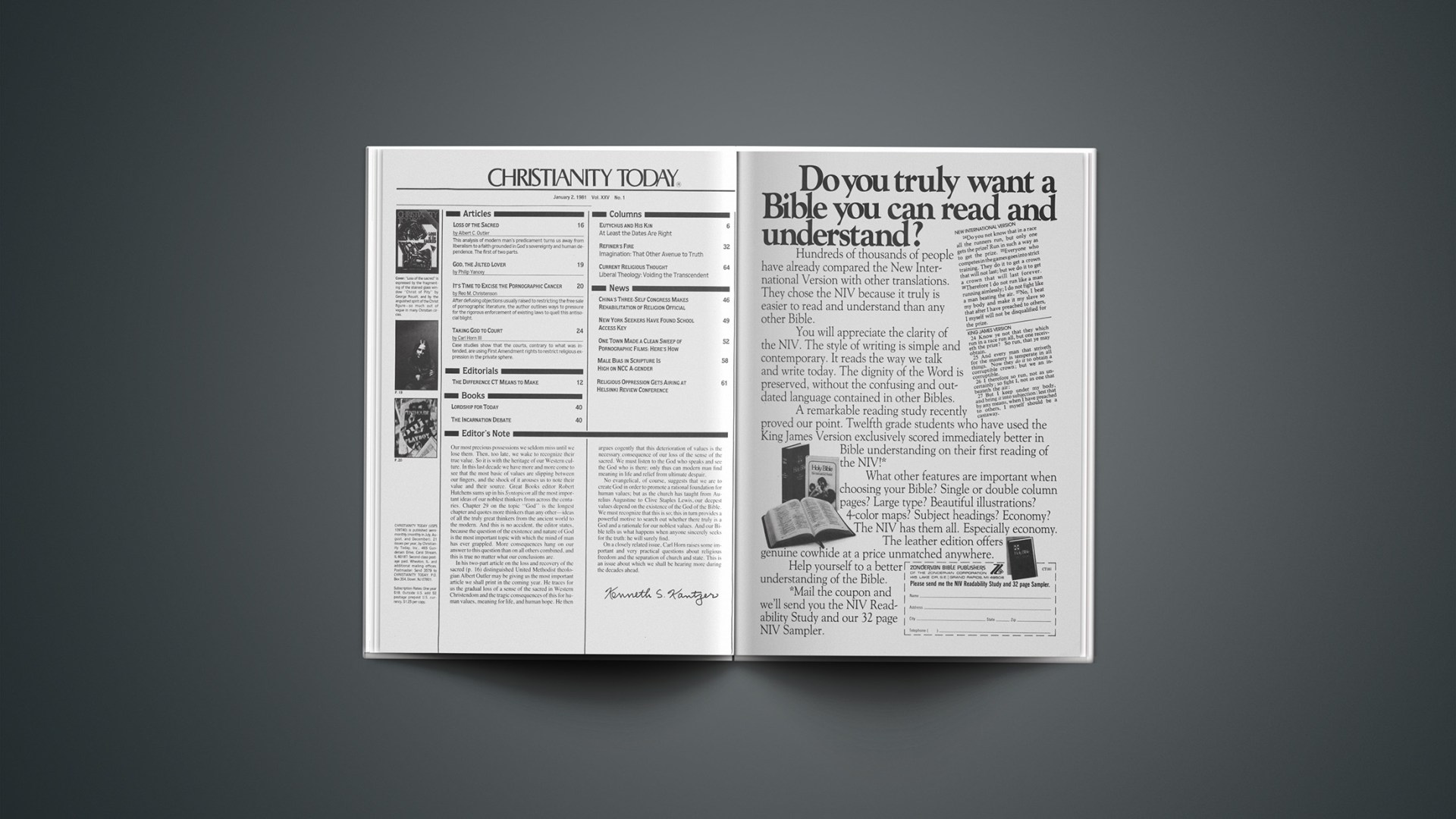Our most precious possessions we seldom miss until we lose them. Then, too late, we wake to recognize their true value. So it is with the heritage of our Western culture. In this last decade we have more and more come to see that the most basic of values are slipping between our fingers, and the shock of it arouses us to note their value and their source. Great Books editor Robert Hutchens sums up in his Syntopicon all the most important ideas of our noblest thinkers from across the centuries. Chapter 29 on the topic “God” is the longest chapter and quotes more thinkers than any other—ideas of all the truly great thinkers from the ancient world to the modern. And this is no accident, the editor states, because the question of the existence and nature of God is the most important topic with which the mind of man has ever grappled. More consequences hang on our answer to this question than on all others combined, and this is true no matter what our conclusions are.
In his two-part article on the loss and recovery of the sacred (p. 16) distinguished United Methodist theologian Albert Outler may be giving us the most important article we shall print in the coming year. He traces for us the gradual loss of a sense of the sacred in Western Christendom and the tragic consequences of this for human values, meaning for life, and human hope. He then argues cogently that this deterioration of values is the necessary consequence of our loss of the sense of the sacred. We must listen to the God who speaks and see the God who is there; only thus can modern man find meaning in life and relief from ultimate despair.
No evangelical, of course, suggests that we are to create God in order to promote a rational foundation for human values; but as the church has taught from Aurelius Augustine to Clive Staples Lewis, our deepest values depend on the existence of the God of the Bible. We must recognize that this is so; this in turn provides a powerful motive to search out whether there truly is a God and a rationale for our noblest values. And our Bible tells us what happens when anyone sincerely seeks for the truth: he will surely find.
On a closely related issue, Carl Horn raises some important and very practical questions about religious freedom and the separation of church and state. This is an issue about which we shall be hearing more during the decades ahead.










